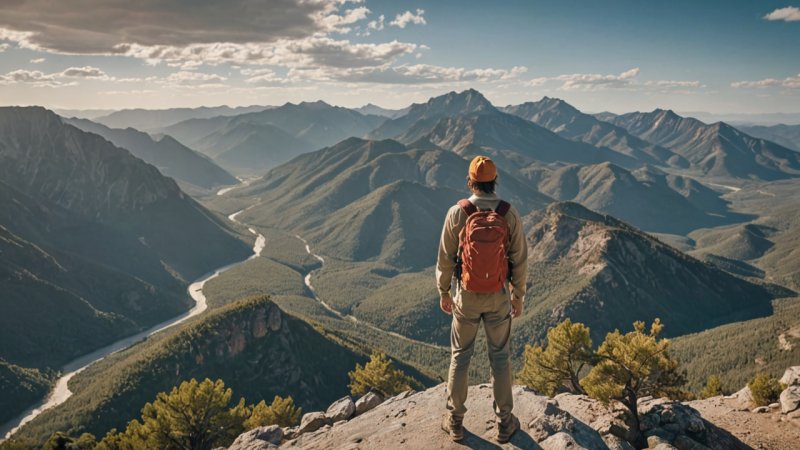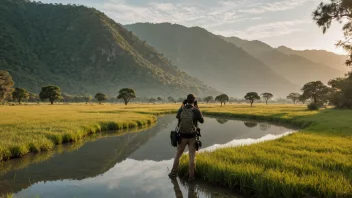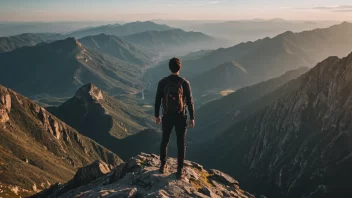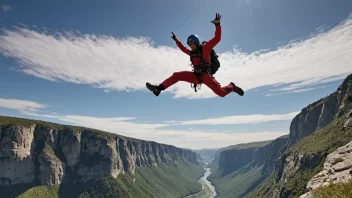Traveling to remote areas can be an exhilarating experience, offering the chance to explore untouched nature, unique cultures, and breathtaking landscapes. However, venturing off the beaten path comes with its own set of challenges and potential hazards. To ensure your adventure is both enjoyable and safe, it's crucial to be well-prepared and informed. Here are some essential tips to keep in mind when traveling in remote areas.
1. Research Your Destination
Before you set off, take the time to thoroughly research your destination. Understanding the local culture, climate, and potential hazards can significantly enhance your safety. Consider the following:
- Local Laws and Customs: Familiarize yourself with the local regulations and cultural norms. Different countries may have unique practices that could affect your experience.
- Terrain and Weather: Research the geography and current weather conditions. Knowing what to expect can help you pack appropriately and plan your activities.
- Emergency Services: Identify the nearest hospitals, police stations, and other emergency services. Having this information at hand can be crucial in case of an emergency.
2. Prepare for Communication
In many remote areas, reliable communication can be a challenge. It’s essential to have a plan for staying connected or reaching help if needed. Here are some tips:
- Mobile Coverage: Check if your mobile provider offers coverage in the area you’re visiting. Consider getting a local SIM card if necessary.
- Satellite Phones: In extremely remote locations, a satellite phone can be a lifesaver. These devices do not rely on cellular networks and can provide communication in areas with no service.
- Emergency Contacts: Share your itinerary and emergency contacts with friends or family before departure. Keep a copy of essential numbers handy, including local emergency services.
3. Pack the Right Gear
Having the right equipment can make a significant difference in your safety and comfort while traveling in remote areas. Ensure you include the following:
- First Aid Kit: A well-stocked first aid kit is essential for any traveler. Include items like band-aids, antiseptic wipes, pain relievers, and any personal medications.
- Navigation Tools: Equip yourself with a reliable map or GPS device. In addition, consider a compass and learn how to use it.
- Appropriate Clothing: Dress in layers and choose clothing that is suitable for the climate. Waterproof jackets and sturdy footwear are crucial in unpredictable terrains.
4. Stay Aware of Your Surroundings
When exploring remote areas, it’s vital to remain vigilant and aware of your surroundings to avoid potential hazards. Keep the following in mind:
- Wildlife Awareness: Be informed about the local wildlife and the potential risks. Understand how to behave if you encounter animals, especially if they are known to be dangerous.
- Natural Hazards: Stay alert for environmental dangers such as unstable terrain, fast-moving water, or extreme weather changes. Always heed local warnings and signs.
- Traveling in Groups: Whenever possible, travel with others. There’s safety in numbers, and having companions can help in emergencies.
5. Trust Your Instincts
Finally, one of the most vital tips for safe travel in remote areas is to trust your instincts. If something feels off or unsafe, don’t hesitate to change your plans or seek help. Here’s how to cultivate this awareness:
- Listen to Your Gut: If you feel uncomfortable in a situation, leave. Your intuition is a powerful tool that can guide you.
- Stay Informed: Engage with locals and fellow travelers to gather insights about safety in the area. Their experiences can provide valuable information.
- Be Flexible: Adapt your itinerary based on real-time conditions. Being open to change can enhance your safety and enjoyment.
Traveling in remote areas can be a remarkable experience filled with adventure and discovery. By following these safety tips, you can mitigate risks and focus on enjoying the beauty and uniqueness of your surroundings. Remember, thorough preparation, awareness, and trusting your instincts are key to a safe and memorable journey.






